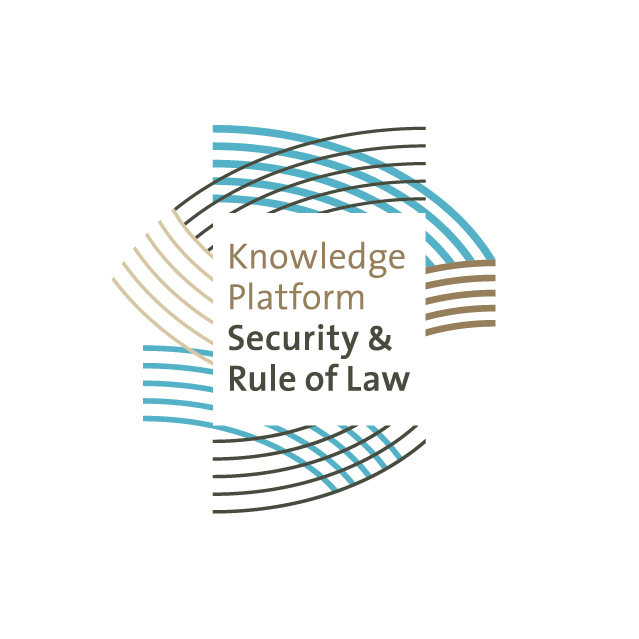Don't miss out on your breakout sessions and workshops of choice
Thanks to the great enthusiasm and inputs of the Platform's network, we are able to provide you with a diverse program of breakout sessions and skills workshops. Register now to secure a spot in your preferred individual session(s)!
(Confirmed conference participants only, we have reached full capacity).
Check out the conference app
We aim to create a useful, interactive, and eco-friendly replacement to our program booklet. The app provides for a timetable, more information on the various breakout sessions and workshops, an overview of speakers & facilitators, a map of the venue, messaging with others, a Bazaar of Publications and a survey. We look forward to an inspiring day!
Simply download the app called "Guidebook" on your phone, sign up with your email address and password, and search for "srolconf" or "hardchoices" to install it.
Download the app now to find out more!
Program
8.30-9.30 | Arrival and registration – Welcome coffee
9.30-10.00 | Welcome remarks
By George Mukundi Wachira, Head - African Governance Architecture Secretariat, Department of Political Affairs, African Union Commission & Steering Group member of the Platform.
Moderation by Rob Sijstermans, Training & Research Fellow - Clingendael Institute
10.00-11.00 | Keynote conversation
A moderated conversation with:
Simone Filippini, Managing Director - Cordaid
Kathryn Nwajiaku-Dahou, Head - International Dialogue on Peacebuilding and Statebuilding Secretariat - Organization for Economic Co-operation and Development
Katy Thompson, Rule of Law, Justice & Security Specialist - United Nations Development Program
Jelte van Wieren, Director - Stabilization and Humanitarian Aid Department, Dutch Ministry of Foreign Affairs
Moderation by Cheryl Frank, Head of the Transnational Threats and International Crime Division - Institute for Security Studies.
11.00-17.30 | Breakout sessions (coffee & tea provided in breakout locations)
Sessions will run concurrently in blocks so participants have the option to attend several, or just one, and take advantage of the available time to link up with other participants. Space for such exchanges will be catered for. See below for overview of breakout sessions per theme.
13.00 - 14.30 | Lunch & side event
17.30 - 18.15 | Fishbowl closing
By Rob Sijstermans
18.15 | Drinks
Breakout sessions & workshops
Registrations for the breakout sessions and workshops will open shortly.
Theme 1: Which balance to adopt in addressing current and emerging transnational security challenges?
In a context of increasing donor focus on refugee crisis response and declining aid budgets, dilemmas and trade-offs in the prioritization of humanitarian, security and development interventions will be examined in a range of sessions worked out with network members.
Peace within reach: lessons from Colombia, Burundi and Libya
Although many of the world’s on-going armed conflicts appear intractable, examples of past and current peace processes in Colombia and Burundi shine light on the challenges that are faced, and sometimes overcome. The difficulties of negotiating in a context of on-going armed conflict, the challenges in converting armed movements into peaceful political forces, and lessons learned will be explored. Organized by the Netherlands Institute for Multiparty Democracy & the Conflict Research Unit of Clingendael Institute.
Facilitator: Heleen Schrooyen, Senior Program Manager - Netherlands Institute for Multiparty Democracy
Guest experts: Juan Fernando Londoño, Former Deputy-Minister of Interior of Colombia, expert on the peace process
Fabien Nsengimana, Director - Burundi Leadership Training Program
Rule of Law reform in protracted crises
In conventional thinking humanitarian assistance precedes development aid in the process of recovery. In practice, however, they frequently overlap. Crises are often protracted in nature and even when they are not, the need for emergency assistance may continue as efforts to enhance the capacities of local institutions to contribute to and ultimately drive recovery get underway. This round table session will focus on linkages between emergency responses and longer term strategies to develop justice sector capacity in contexts of fragility. In particular, we will look at how such approaches can be implemented in a complementary way and how to avoid negative interference.Organized by IDLO and Conflict Research Unit of Clingendael Institute.
Facilitator: Marco Lankhorst, Head of Research - IDLO
CVE and de-radicalization: emerging challenges and dilemmas
Which balance between the criminalization of hate speech and freedom of expression? Isolating terrorist organisations or entering into negotiations? De-risking banks or facilitating humanitarian support, peacebuilding and development through financial transfers? Tackling the breeding ground for violent extremism, or risking instrumentalisation of rule of law and development actors? Which risks in the essentialisation of women within CVE and what opportunities for human security at the community level? Organized by the Human Security Collective and the International Centre for Counter-terrorism.
Facilitators: Fulco van Deventer, Director - Human Security Collective & Marco de Swart, Senior Portfolio Manager - International Centre for Counter-terrorism
Non-state actor mass violence: how to mitigate their unjust harms?
Many of the methods used with conventional states – such as diplomacy, targeted humanitarian and development assistance, and sanctions – simply do not work when attempting to confront the instability and injustice that non-State armed actors (NSAs) engender. Possibilities for new tools – or new iterations of existing ones, – that can help prevent, slow, or stop mass atrocities committed by NSAs will be explored. Organized by the Strategy for Humanity, and The Hague Institute for Global Justice.
Facilitator: Charles Brown - Managing Director of Strategy for Humanity
Citizens seeking security in MENA: the intersection of local demands and international responses
How do international responses to the MENA region crisis (eg. countering violent extremism, securing borders) intersect with the demands of populations seeking everyday security amidst the turbulence unleashed by the Arab Spring? Guests experts share insights on access to security from an end-user perspective in contexts of authoritarianism, state erosion, and civil conflict, including Lebanon and Tunisia; and speculate on how international policy might effectively foreground citizen needs and aspirations. Organized by PAX, Conflict Research Unit of Clingendael Institute, International Alert & Lebanon Support.
Facilitator: Michael Warren, Program Manager - PAX and Megan Price, Research Fellow - Conflict Research Unit of Clingendael Institute
Guest experts: Mehdi Barhoumi, Senior Program Officer - International Alert
Mariam Younes, Research Coordinator - Lebanon Support, and Marie-Noëlle Abi Yaghi, President & Head of Research - Lebanon Support.
Addressing drivers of radicalization: social and economic marginalization
This interactive session aims to identify the challenges in understanding socio-economic causes of radicalization and measures to be taken to tackle these constructively and effectively. Drawing on recent research insights and lessons from programming in FCAS by SESRIC, SPARK and Intervict, the session aims to approach these questions from both a socio-economic perspective as well as from the perspective of how life stories, cultural and psychological aspects play a role in radicalization. Participants will jointly identify specific hard choices, key dilemma’s, information gaps that currently exist in this complex field of work. Organized by SESRIC, SPARK and Intervict.
Facilitator: Rob Sijstermans, Training & Research Fellow - Clingendael Institute
Youth Migration from West Africa: unpacking our assumptions
The Valetta Summit requires EU member states to address root causes of migration, such as youth unemployment and lack of economic opportunities. This session aims to jointly challenge some of the underlying assumptions of addressing youth unemployment as a cause of migration. What is actually causing youth to leave and what is an adequate policy response to this? Based on recent research into drivers of youth migration from West Africa, this interactive session will try to identify some of the hard choices to be made for policy and programming to address these drivers of migration in the long-term. Organized by SpringFactor.
Facilitator: Marije Balt
Theme 2: Towards more politically transformative rule of law support
Novel approaches that do not circumvent but are cognizant of national and local political realities will be explored to tackle the key blind spots that working with informal justice mechanisms and challenging State-led injustices present. Find below a set of breakouts drawing upon innovative research, developed in collaboration with the Platform's network.
Reconciling international peace and justice norms with local needs: the illusion of hard choices
Justice is a subjective term with very contextual understandings. Overcoming injustices in the interest of peace requires highly nuanced local work that is deeply political and often uses concepts of justice not shared at the international level. How does this reconcile with the global vision and more normative nature of Goal 16 of the Sustainable Development Goals? Organized by Saferworld.
Facilitators: Will Bennett & Thomas Wheeler, Conflict and Security Advisors - Saferworld
New ways to tackle state crime: lessons from Guatemala
Recognition is growing of the harmful effects on human welfare, democratic legitimacy and peace of serious political and economic crimes carried out by state actors. The International Commission Against Impunity in Guatemala (CICIG) stands at the vanguard of efforts to prosecute serious crime and corruption at the highest levels of power. What lessons may be drawn, which initiatives are outstanding, and what are the limits to progress?
Facilitator: Marlies Stappers, Executive Director - Impunity Watch
Guest experts: Alejandro Rodríguez, Guatemalan Lawyer and expert on the CICIG
Daniel Saxon, Assistant Professor, Leiden University
Ivan Briscoe, Senior Research Fellow, Conflict Research Unit of Clingendael Institute
Linking formal and informal justice in fragile and conflict-affected states
In light of the limited success of state-centric approaches and the challenges presented by informal justice systems, practitioners and researchers reflect on reforming the latter and explore ways to rely on formal justice to keep informal systems in check. Externally-devised and technical solutions are seldom sufficient – and policy and programming need to be conscious of the local context of politics, power and culture. Organized by IDLO, Cordaid, Van Vollenhoven Institute and University Ghent.
Facilitator: Marco Lankhorst, Head of Research - IDLO
Guest experts: Suliman Ibrahim, Senior Researcher - Van Vollenhoven Institute and Benghazi University), Hélène Flaam, Researcher - University of Ghent, Carolien Jacobs, Assistant Professor - Van Vollenhoven Institute, Bruno Braak, Researcher - Van Vollenhoven Institute, Stephanie Joubert, Program Officer - Cordaid, and Karim el Mufti, Senior Researcher on Security and Justice - Center for International Human Sciences.
Theme 3: Innovation in security and rule of law programming
How to effectively adapt development strategies to the “hard contexts” of State fragility, including within the framework of the SDGs? Members of the Platform reflect on lessons for iterative programming and participatory approaches, as well as challenges faced in balancing accountability and learning incentives.
The new frontier: shifting organizational learning culture
What is organizational culture and how to ensure that it incorporates, incentivizes and rewards learning? Through an interactive workshop, each participant will have the opportunity to identify key barriers and processes as regards organizational culture change and will leave with ideas for actions and activities that have minimal cost but high returns to foster organizational learning. Organized by Search For Common Ground.
Facilitator: Vanessa Corlazzoli, Director of Design, Monitoring and Evaluation - Search For Common Ground
Problem-driven, adaptive and flexible justice and security sector engagement
A practical exercise will guide participants through what it might mean to tackle concrete justice and security challenges, using problem-driven political economy thinking to identify politically plausible and context relevant entry-points and ‘ways of working’. The use of knowledge and the meaningful embedding of learning into programming will be reflected upon to facilitate adaptive engagement. Limits and merits of these approaches will be critically assessed. Organized by Overseas Development Institute.
Facilitator: Pilar Domingo, Research Fellow - Overseas Development Institute
Employment for stability: theory and action
In which ways does « employment for stability » resonate differently with various stakeholder groups and how do these respective priorities feed into the design, implementation and evaluation of interventions ? In an interactive framework, participants will share perceptions, derive key insights into existing assumptions, and reflect on scope to optimize theories of change. Organized by The Hague Institute for Global Justice, International Security and Development Center, and United Nations University Merit.
Facilitator: Neil Ferguson, Researcher - The Hague Institute for Global Justice
Deepening gender perspectives in conflict analysis
Despite international commitments to mainstream gender in peacebuilding, conflict analysis often includes gender considerations in a very limited way, if at all. This session will explore how gender perspectives can be incorporated in conflict analysis in a more meaningful manner, going beyond ‘add women and stir’, to inform increasingly gender-sensitive approaches in peacebuilding, security and rule of law. Organized by Saferworld.
Facilitator: Hannah Wright, Gender, Peace and Security Advisor - Saferworld
Policy Influencing in Rule of Law Reform
Civil society networks dedicated to policy influencing are critical to inclusive, effective, and sustainable rule of law reform, yet this remains an underdeveloped field of work. Conventionally, donors and implementing organizations have conveyed reluctance to venture into the policy influencing dimension of rule of law reform, given its perceived overtly political nature. However, inevitably change is driven by people implementing laws and policy and engagement in this dimension occurs, at times without the benefit of identified good practice. Programming demands a clear understanding of concepts and processes linked to policy influencing and CSO networking in order to assess risks, opportunities, and added value. Organized by IDLO, SOMO and UPEACE.
Facilitated by Pamela Kovacs, Research & Learning Officer - IDLO
Planning, monitoring and learning: data-driven innovation
How can data lead to more effective communication, engagement, advocacy, and ultimately enhanced security and rule of law for the individuals, communities and countries concerned? The focus will lay on adaptive learning based on data and the discovery of patterns from a range of perspectives. Sustainable answers to the various challenges in the field of security and rule of law require data, sometimes big data. Avenues to deal with programs that take place in the complex domain where causal relationships are not straightforward will be explored. Organized by Hiil, Oxfam Novib and Sprockler. Further information will soon be online.
Facilitator: Mariken Gaanderse, Social Entrepreneur - Fonkeling
Theme 4: Skills workshops
Brush up on communication skills, test behavior change approaches and learn about how to operate in a politically-savy manner and improve impact in fragile settings through a range of hands-on workshops.
Mapping for a purpose: how to achieve impact with your campaigns & events
How to identify your target audience, grasp political structures and power relations, and map the complex environment in which your organization is operating? This interactive workshop will bring you closer to understanding who you are talking to and what you need to say so as to purposefully organize media campaigns and events to bring about real impact. Organized by RNTC.
Facilitator: Brandon Oelofse, Senior Trainer & Coordinator - RNTC
Crisis communication: what do you hear? what do you say?
Want to be better prepared to communicate effectively during a crisis ? In this workshop, participants will gain an understanding of how crises develop, how they can plan and organize ahead of time, and how they can respond more effectively when one breaks out through a number of practical cases and examples. Different theories in crisis communication will provide for inspiration. Organized by Clingendael Institute.
Facilitator: Hans Wurzer, Senior Trainer & Coordinator - Clingendael Institute
How to use the impact pathway and theory of change?
NWO-WOTRO uses these concepts to define the ‘problem - knowledge gap - research design – output – outcome – impact’ logic in the design of project proposals and as a means to monitor progress. Elaborating them is no easy job, but they are useful tools to arrive at a common understanding of approaches and goals, and how to get there within project teams. Learn more in this interactive session. Organized by NWO-WOTRO.
Facilitator: Han van Dijk, Research Uptake Manager - NWO-WOTRO Guest experts: David Connolly, Head of Program- The Hague Institute for Global Justice, Charlotte Divin, Program assistant – GPPAC.
The "E"word: why counter radicalization needs to use emotion
Few interventions that seek to challenge radicalization adopt a behavior change approach. Preventative action must however take account of the environments in which extremism may flourish and requires a deep understanding of why individuals become radicalized. Learn about the crucial role that media can play to address the emotional basis on which decisions to radicalize are taken and find out how to construct effective counter-narratives.
Facilitator: Brandon Oelofse, Senior Trainer & Coordinator - RNTC
Speed-up your research impact
In a speeddating set-up, research teams (max. 2 individuals) will be offered short opportunities to put questions relating to the achievement of impact that they expect to encounter in their project to a practitioner, policymaker, or other researcher to find mutual interests or obtain advice. After a few short speeddating rounds, groups will be formed on the basis of common issues to deepen the conversation and exchange ideas. Organized by NWO-WOTRO.
Facilitator: Han van Dijk, Research Uptake Manager - NWO-WOTRO.




